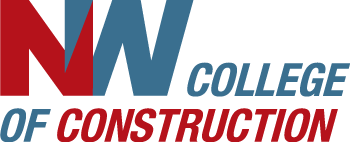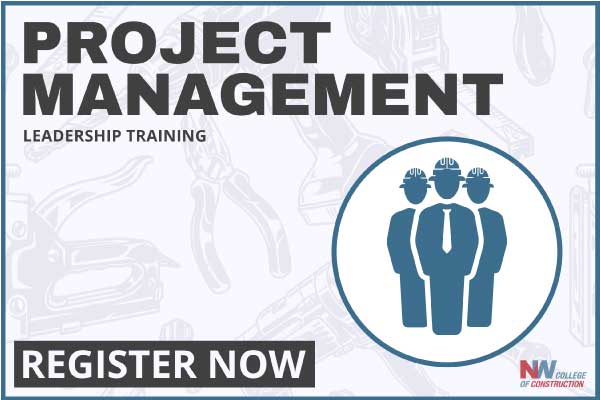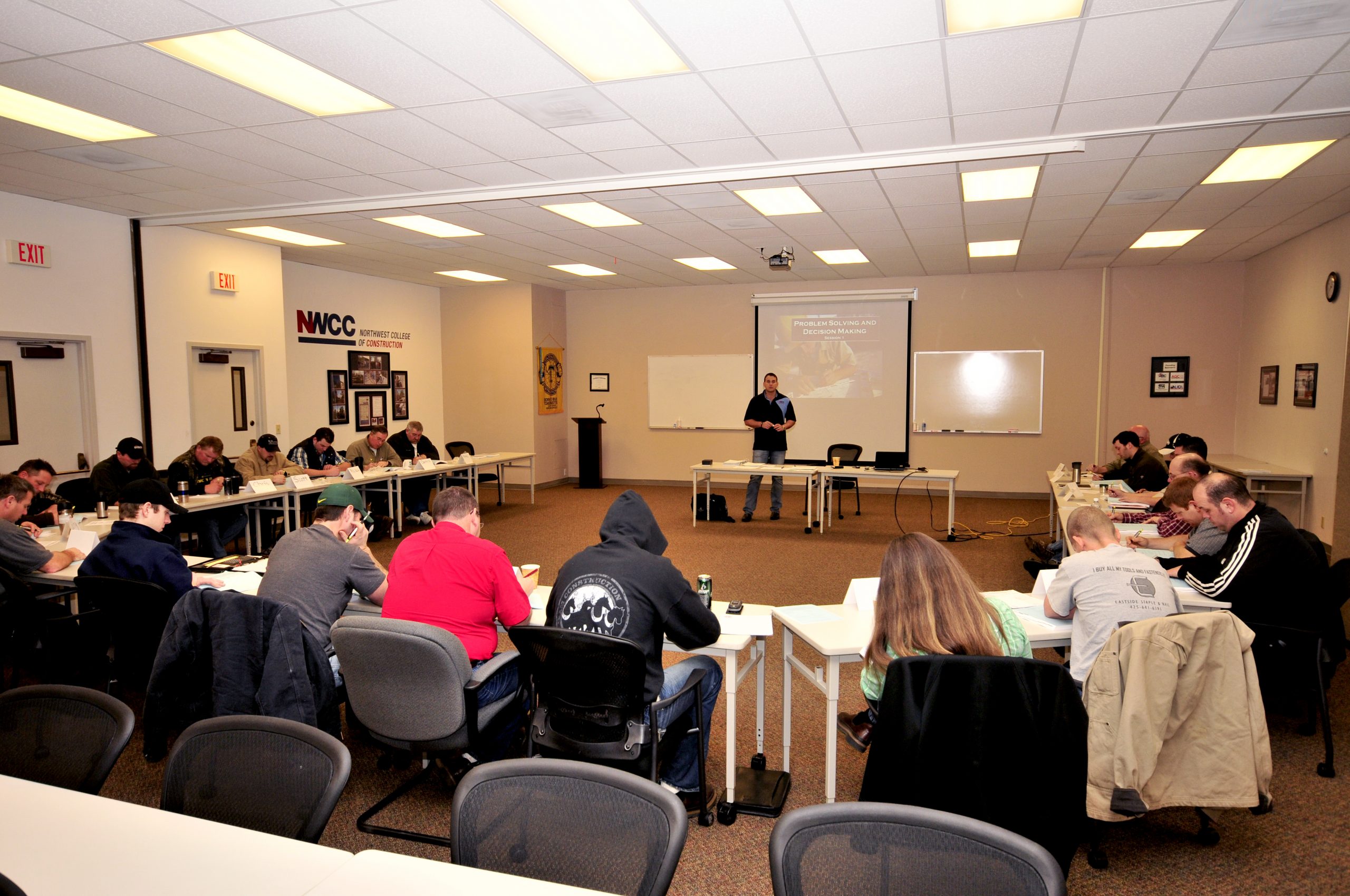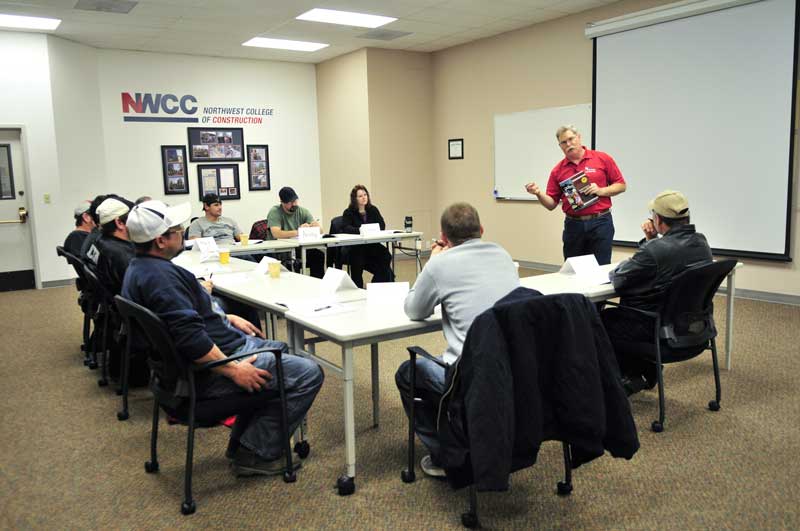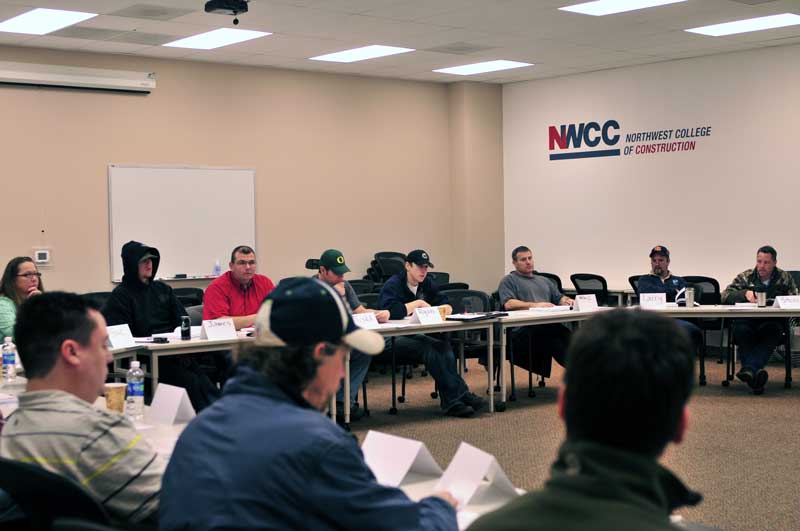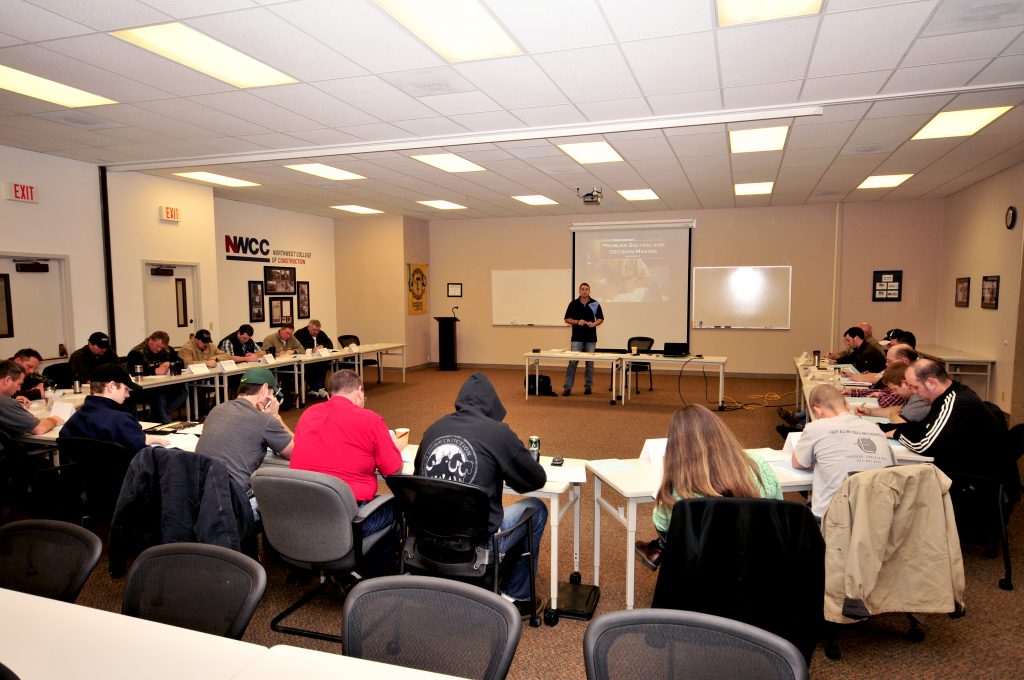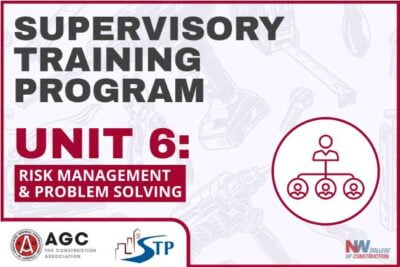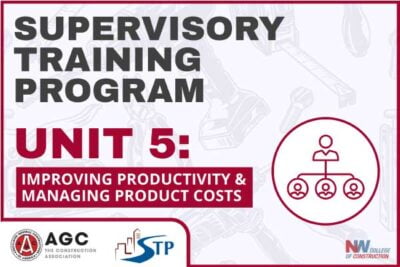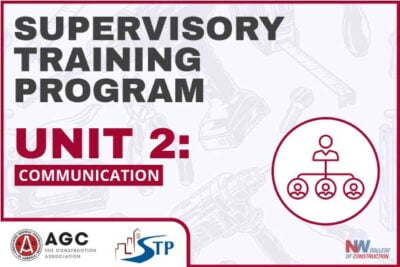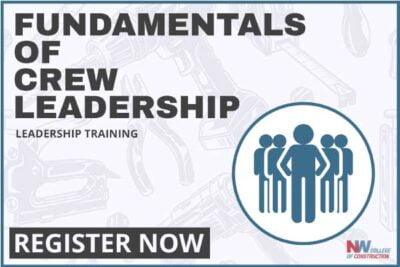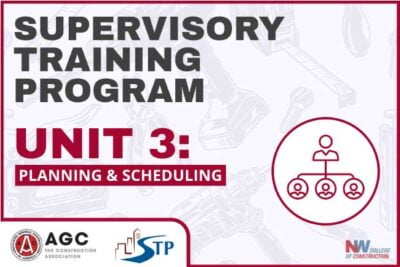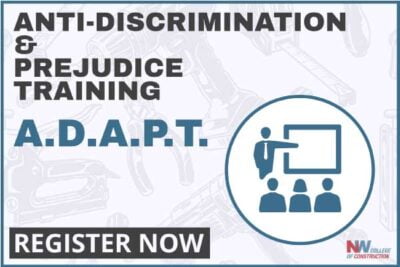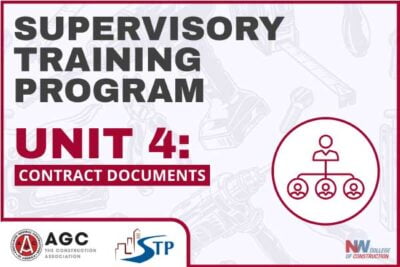COURSE DETAILS:
Management skills directly affect every company’s bottom line. Each day key decisions made by project managers and supervisors are crucial to the success of every construction project.
The NWCOC Project Management Training program was developed by the National Center for Construction Education and Research (NCCER) to help learners develop an understanding of construction materials and methods, mathematics, communications, safety, human resources, scheduling and customer service. Curriculum topics include Construction Documents, Resource Control and Continuous Improvement.
The class is an accelerated semester program for professionals and is limited to 20 participants.
PREREQUISITE: Minimum 5 years of construction supervisory experience or pre-approval from the course instructor.
The Project Management course requires a laptop installed with the desktop version of Microsoft Project Professional 2021 (included with Project Plan 3).
It is recommended students bring their own laptop with Microsoft Project installed beforehand.
If you are not able to provide your own laptop with Microsoft Project, one will be provided for you during class time. These laptops are not available for check-out and must remain in the classroom.
PLEASE NOTE: This course is IN-PERSON at our Portland, OR campus. This course is not taught online.
February 3, 2026 – April 2, 2026
Tuesdays & Thursdays 6:00pm-9:00pm
COURSE LEARNING MODULES:
Project management training introduces the role and responsibilities of project management, including technical and management skills and an overview of the phases in a construction project.
Describes alternate project delivery methods.
Stresses the importance of job site safety and identifies the project manager’s duties and responsibilities regarding safety.
Covers loss prevention and creating a zero-accident work environment.
Presents several checklists as references.
Discuses the values of the workforce, building relationships, and satisfying stakeholders.
Describes the principles of effective communication, applying the management grid, and using relationship skills to create a leadership environment.
Also discusses behavioral interviewing and professional development of personnel.
Describes the key elements of successful negotiations and negotiating techniques.
Discusses how to recognize nonverbal signals, use negotiating tools, and apply conflict resolution strategies.
Identifies symptoms and barriers to solving project related problems, applying problem-solving techniques, brainstorming, and identifying root cause consequences.
Emphasizes the importance of documentation and explains the types of documents, drawings, and specifications used on a project.
Explains methods of obtaining work in the industry and types of contracts and insurance requirements.
Describes the change order process and the documents required to close out a project.
Discusses the importance of formal job planning and creating a performance-based work environment. Discusses the Work Breakdown Structure (WBS) as the foundation that identifies deliverables, tasks, and time. Introduces the basics of quality control and defines the roles and responsibilities of an effective team and how to allocate resources.
Project management training emphasizes the importance of accurate estimating and summarizes the estimating process and the steps in developing an estimate.
Defines the purpose of a cost control methodology, explains how to perform simple cost analysis, and covers the project manager’s role in controlling cost and tracking rework cost.
Provides instruction in the basics of scheduling from simple to-do lists through bar charts, and network diagrams, and methods of managing resources.
Discusses the importance of formal schedules, job planning, and establishing priorities.
Describes alternative scheduling methods.
Identifies the resources that must be controlled, the major factors which affect production control, and production control standards.
Explains the project manager’s role in the process and how to distinguish between production control and productivity.
Project management training defines quality control and quality assurance, and stresses management’s concerns about quality.
Explains project quality management and how to develop an effective quality control plan.
Discusses how to identify, assess, and measure weaknesses to avoid rework.
Describes the project manager’s role in creating a culture of continuous improvement.
Explains the fundamentals of a continuous improvement program and how to identify the critical problems and processes that require improvement, implement a continuous improvement process, and measure results.
Emphasizes the importance of satisfying internal external stakeholders.
Those interested in leadership training should also see the SUPERVISORY TRAINING PROGRAM.
